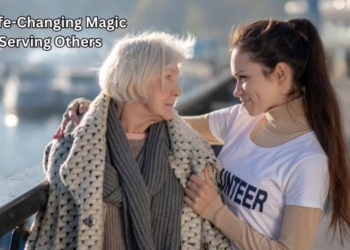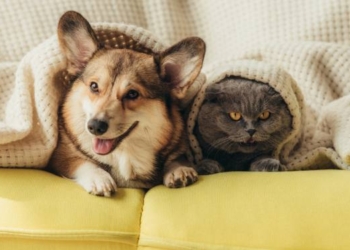Bringing your new puppy home is an exciting experience for everyone involved. This article will explore some things to consider along with some hand resources & hints to assist both yourself & your puppy with the transition.
Create A Calm Environment

Putting yourself in the mindset of your puppy of not only being introduced to a whole new family, while being removed from an environment where you had previously spent a month or two surrounded by your siblings, can be daunting & stressful.
Know When Your New Puppy Is Aggressive
Always remember that an aggressive puppy can be a dangerous dog, so you should always anticipate the worse and prepare. Knowing the warning signs when a puppy is aggressive is very important, so proper intervention is provided.
The most common signs of an aggressive puppy include snarling, mounting, growling, snapping, nipping, dominance, challenging stance, lip curling, lunging, dead-eye stare, possessiveness, aggressive barking, and biting.
Take a look at these tips in handling an aggressive puppy:
- Know the Source of Aggressiveness: Your puppy is probably in pain because of tucking his tail or pinning his back, so these things should be avoided to avoid triggering his aggression.
- Interrupt and Redirect Attention: Interrupt an aggressive puppy from growling and biting by standing up, then walking away or removing the puppy from the resting area. You can interrupt and redirect your puppy's attention to a more appropriate activity like chewing toy every time he bites during petting or play.
- Consult a Vet: The best person who can help you assess your puppy's real condition is a veterinarian. You'll be given expert tips to manage your puppy's environment to avoid aggressive behaviors.
- Long Train Leash: Putting your puppy on this training during play sessions with other dogs or people will help lessen his aggression. When your puppy starts getting too rough, step on the leash to pull him away.
- Avoid Rough Play: Puppies tend to get excited when people, most especially children around, scream, squeal, and frequently move around. Using a leash and teaching your children how to play calm or avoids triggering your puppy's aggression.
- Let Your Puppy Enjoy: Allow your puppy to play with other dogs and children to make them more sociable. Keeping your puppy in his playpen may confine his social skills, too, so he gets too excited and aggressive when seeing other dogs and strangers.
Toys & Treats
It always helps to introduce both toys, to make your puppy feel more at home, and treats to assist with reinforcing positive behaviours. In today's marketplace, there are 10's of thousands of options, so how do you know what the best choice for your new puppy is?
One handy read is on The Dog People; this website covers a vast range of articles & reviews as well as a friendly, informed community to help with bringing up your furry friend.
Failing that, a great all-rounder puppy & dog-friendly toy is the KONG, this fun little toy is designed to hide a treat that your puppy can chew on until it can get it out, not only will it be fun for your pet but also act as a bit of a puzzle for them to solve.
Remain In Control Around Young Children

Introducing a puppy to your children while they are young is an excellent opportunity for both your puppy & child to grow-up together. This creates a special bond and not only teaching your child lessons but also being one of their first best friends.
To ensure their initial introduction to each other is a positive one, always ensure you are well-informed on your pet's mood & temperament, as some breeds such as golden retrievers, beagles & collies, for more information on additional kid-friendly pet breeds, checkout PetMD.
For your first introduction, it is helpful to communicate as best as possible to your child to remain calm & gentle with your puppy as to avoid any unnecessary, heavy-handed contact, which can often happen due to your child being excited or feeling nervous.
As your child learns the ‘do's & don'ts' of interacting with your new puppy, their ability to form a life-long bond will follow.
Training & Healthy Outlets

It is important not to underestimate the importance & effectiveness of training your puppy. Commencing training from a young age has multiple positive effects as it not only stimulates your puppy for good mental health. Additionally, as their brain is developing, it is the perfect time to establish routines & habits that will significantly improve the ease of bringing up your puppy for many years to come.
A convenient resource that walks through the steps of teaching your new puppy the fundamental and often first priority of any new pet owner, a ‘how to house/toilet train your puppy' guide is on the RSPCA website.
Conclusion
Hopefully, this article has given you some handy insights on how to make your new puppy feel right at home with you. Although this article has covered a couple of topics, it is always encouraged to explore multiple sources to get the most up-to-date information & hints to help with this exciting adventure.
However, one of the best things you can do to help welcome your new puppy is to project positive energy & always try to enjoy their company and have fun with them.







![A Higher Energy Is Trying To Do Something – Kyle Cease [Video]](https://consciouslifenews.com/wp-content/uploads/2024/04/kyle-cease-its-not-working-350x250.jpg)






